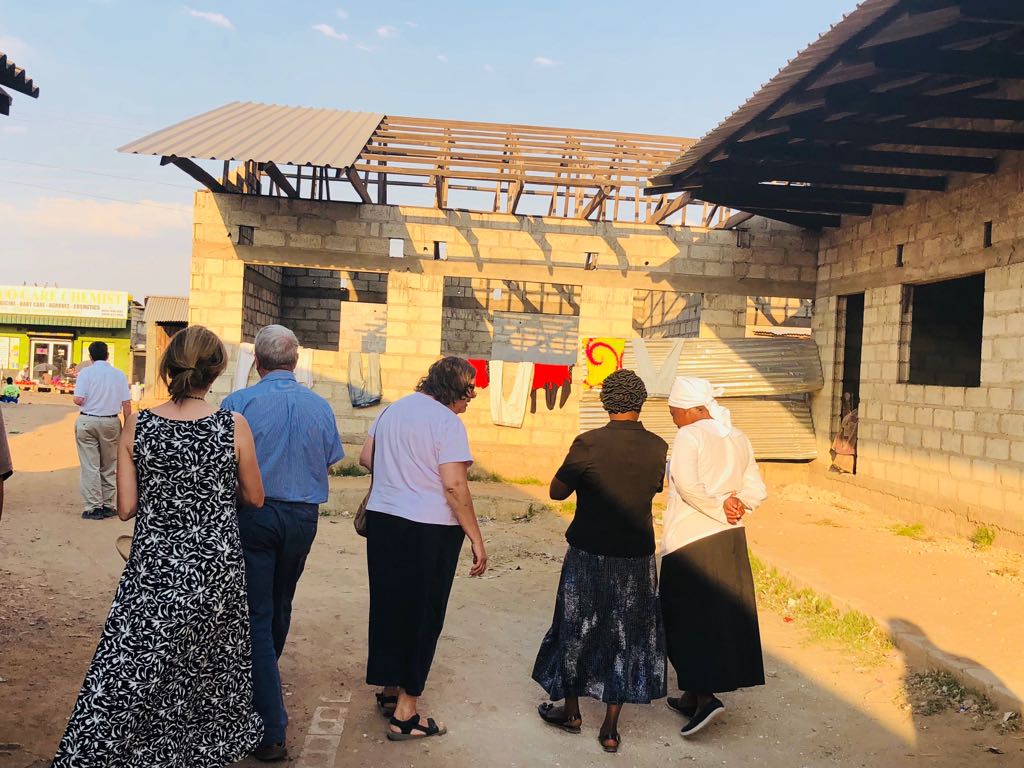Zambia #9 - CCAP Church-based Community Schools
by Ted Wright, for the team
My day began at 5:30 with prayer and sermon prep. This time of year, it’s the nicest hour. Local people rise early, so I am hardly alone.
Our day began at 7:30 with worship in the Justo Mwale University chapel. The guest pastor spoke about Christian identity as being expressed through love. I appreciated his insight on the disciple Peter, often characterized as impulsive. Using African cultural keys, he showed that Peter actually had wonderful intentions, but tried to love Jesus in misguided ways. Aren’t we ourselves quite capable of the same?
At 9:30 we went out the gate on a journey to the CCAP office. The Synod of Zambia has been a strong, reliable partner ever since it welcomed the Wrights some 13 years ago. Today’s agenda had a singular focus: church-based community schools. They serve as alternatives to government schools while offering the same curriculum. What are the big differences? accessibility. Fees are lower; most kids attend free. Christian environment. The board of each school consists of members from the host congregation.
At Matero, on the northwest side of Lusaka, we found a typical facility: bare concrete, minimal furniture. Kids are on holiday until next week. Nevertheless, we met four young teachers: trained and certified. I found a palpable “can-do” attitude amongst them – amazing, in view of major obstacles: lack of a reliable water supply; lack of learning materials; lack of money to pay the teachers. Matero school asks $6 per month, but only 20% of the families actually give that.
At Mandevu (“Beard”), we encountered highway construction completely blocking the turnoff toward the church. Frank drove expertly (should I say “assertively?”) and parked us in a compound across the Great North Road. A little bobbing and weaving on our feet brought us safely to a school we had dedicated ten years ago.
But enrollment has now fallen. Early numbers had been bolstered by an internationally-sponsored feeding program. When it ceased in 2015, many families in the neighborhood elected to keep their kids at home. Or to choose another school since this one lacks a wall fence, meaning that kids can be exposed to undesirable adults. Only 70 remain, mostly from within the church. They span grades 1 to 7. Their teachers hope to receive $50 per month. Government teachers expect more like $300 per month.
We treated our guides, synod moderator Rev. Kabakasa and general secretary Rev. Kabaghe, to lunch at a shopping center. Lebanese food – kind of new to our friends. Thus refreshed, we moved on to Mtendere (“Peace”).
There, we found four large classrooms under construction to supplement the two smaller ones already used. We heard of similar challenges – lack of supplies, lack of salaries – but learned that this school will receive a PC(USA) Young Adult Volunteer for the year about to begin. Great encouragement! Personally, I’m fond of Mtendere because it was the first congregation the Wrights visited in Zambia. Years ago, our niece organized a huge donation of Catholic school uniforms to assist this congregation.
From conversations with the staff I was able to determine that basic learning materials cost $1 per student, on average, from the publisher. This strikes me as highly doable. If a bunch of blog readers each take pieces of this challenge, we ought to be able to cover at least the 402 enrolled at Mtendere.
Let’s see what God can do…
Grace and peace,
Ted Wright





